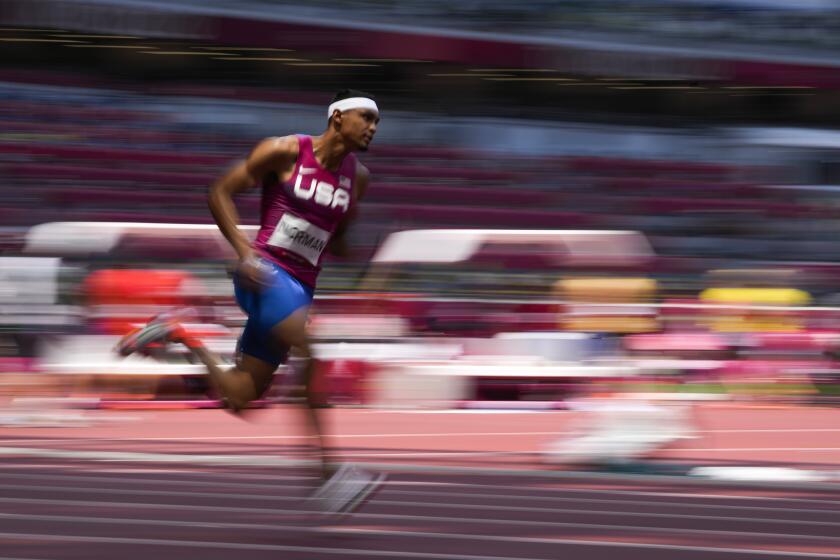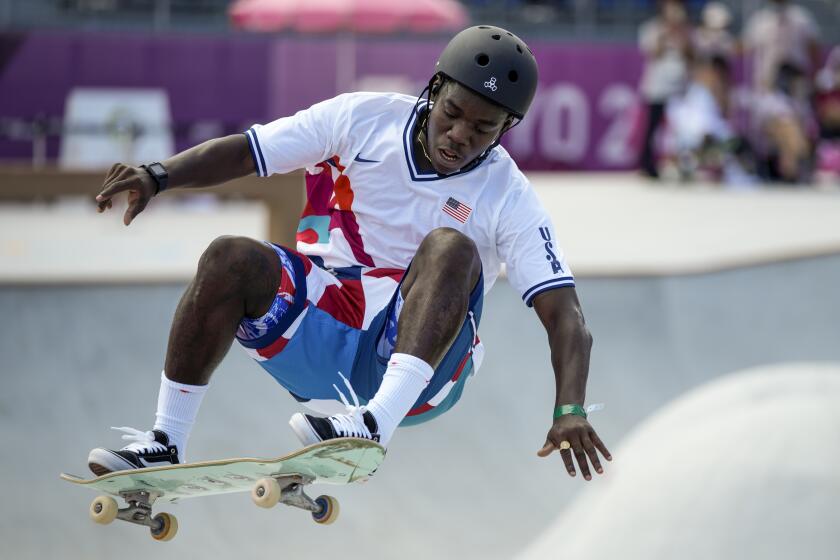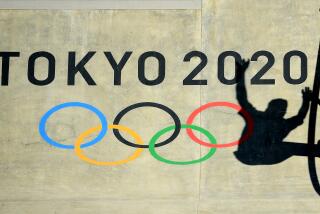Column: Japanese keeping their distance from the Olympics and out-of-town family visits
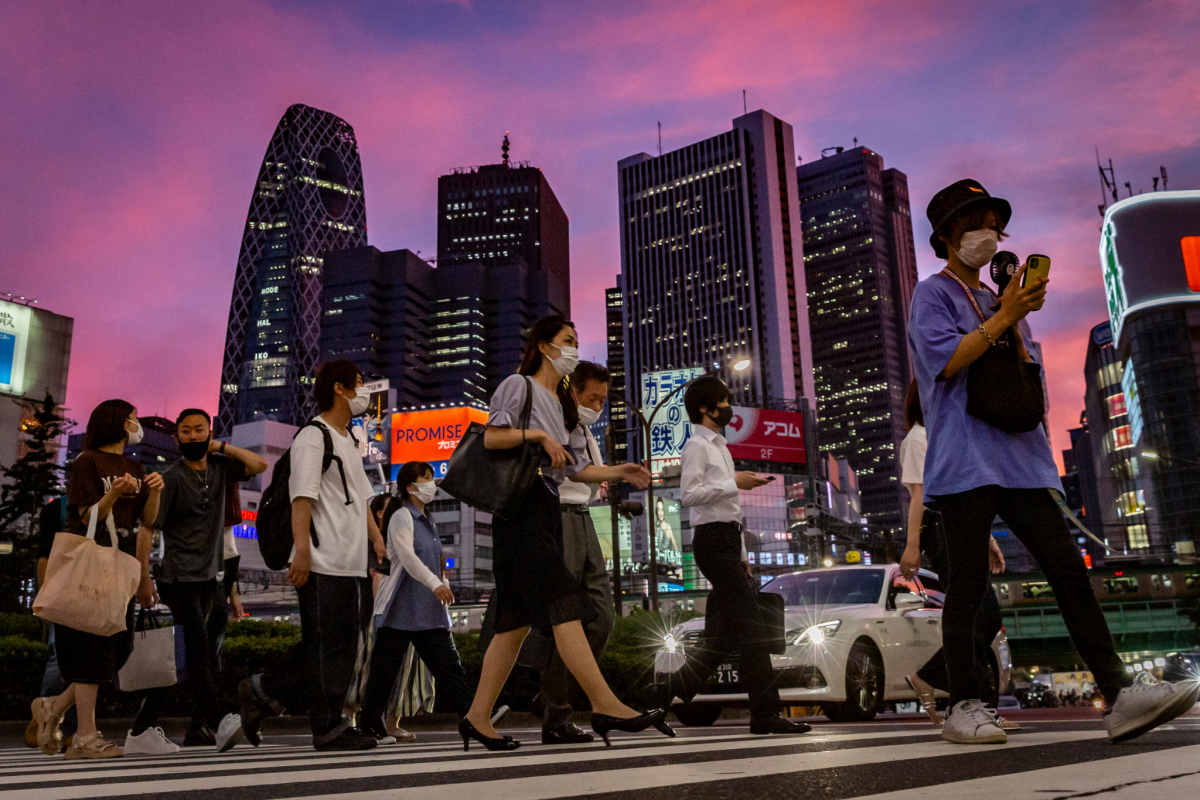
TOKYO — My grandfather chuckled when I told him of the change of plans.
Instead of visiting him and writing about it, I’d be writing about how I couldn’t visit him. Something about that tickled him.
My grandfather, or ojii-chan, is 94. Considering how youthful he sounded over the phone, I was surprised when he told me how old he was.
Still, there were times in our conversation earlier this week that reminded me of why I should visit him as soon as I can, such as when I asked him about my cousin’s children. The last time I saw him was more than 20 years ago, the summer after I graduated from high school.
The Tokyo Games were supposed to be Michael Norman’s Olympics. But after a disappointing fifth-place finish in the 400-meters, the U.S. sprinter’s last chance for gold is in the 1,600-meter relay.
My cousin was working and living in the Tokyo area but returned home a couple of years ago with his wife and children. How many kids were there again?
“Three,” I heard a voice from the back.
My grandfather laughed.
“Your uncle says three,” he said.
Calls like this have become a recent tradition, me ringing my mother’s jikka, or parents’ home, to tell my extended family members I wouldn’t be dropping by. I’ve visited Japan twice in the last four years for work, but my schedule didn’t allow me to take the two-hour Shinkansen bullet train from Tokyo to the western side of the mainland, where four generations of the Watanabe family live in the same house.
Zion Wright overcame the stress and pressure that comes with being a professional athlete to qualify for the Tokyo Olympics in skateboarding.
This time, the impediment was COVID-19.
With the fifth wave of the pandemic coinciding with the Olympics, foreigners are viewed with suspicion in Tokyo right now. Potentially dangerous behavior by Olympics-related visitors has been breathlessly chronicled by the Japanese media, starting with how foreign journalists were permitted 15-minute excursions to convenience stores while in their initial quarantine periods.
But in the rural areas such as the small town in which my mother was born and raised, it’s people from Tokyo who alarm the locals. While Tokyo earlier this week registered a single-day record of more than 5,000 new infections, my mother’s home prefecture of Niigata has yet to record a day with more than 88 new infections.
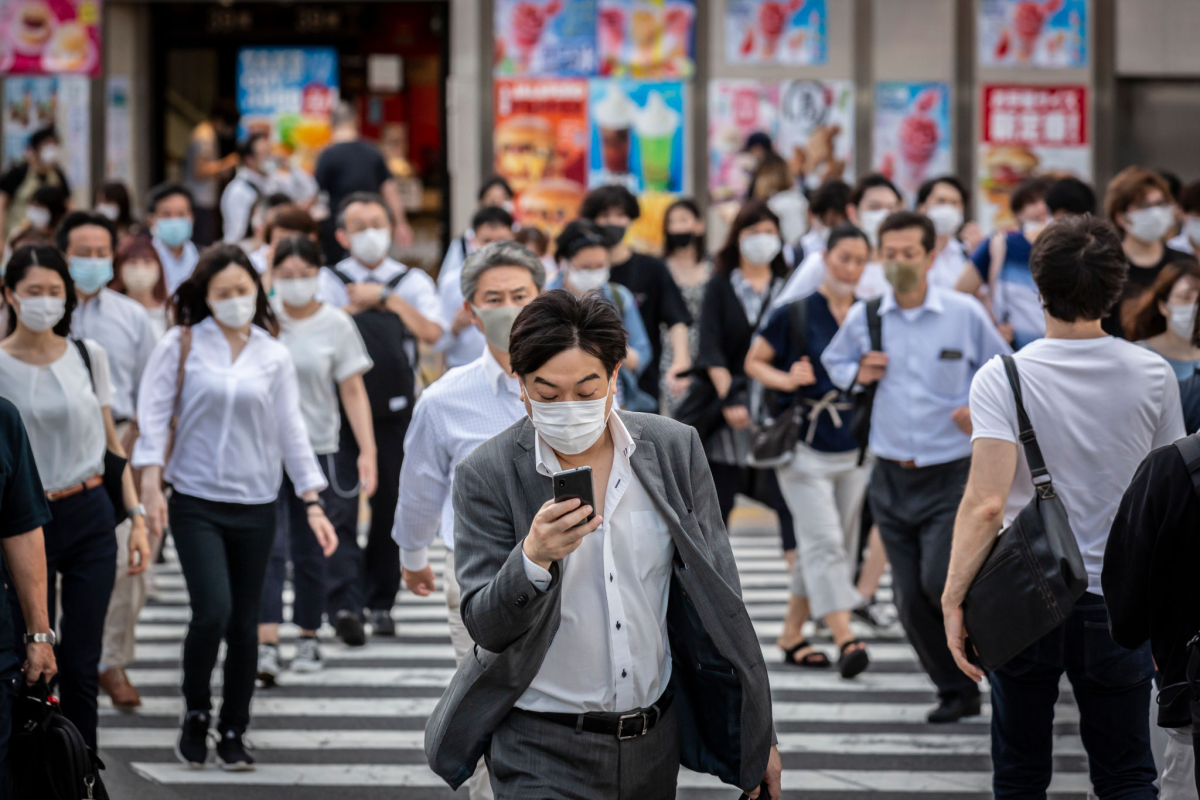
National healthcare officials have advised people in Tokyo to refrain from leaving the prefecture. The warnings have magnified in volume in recent days, as next week is Obon, a religious holiday in which people return to their jikka and clean the graves of their ancestors.
My grandfather received his second Pfizer-BioNTech vaccine dose in June, as did my uncle and aunt. I’m also fully vaccinated. However, even with older residents vaccinated, there are fears an outbreak could easily overburden the local healthcare system. My grandfather’s hometown of Mitsuke is a small agricultural town with fewer than 40,000 residents.
The social climate in these rural areas is one in which it’s frowned upon for someone to even visit a major city such as Tokyo. My cousin Keitaro has a contracting business in Tokyo and continued commuting here even after returning to Mitsuke. But he hasn’t made a single visit since the start of the pandemic.
Keitaro has a daughter in first grade and another in kindergarten. He raised a hypothetical scenario in which he visits Tokyo, contracts the coronavirus and transmits it to his daughters, who, in turn, become the source of an outbreak at school.
“Everyone would be looking for the person who was at fault,” he said. “Not many people live here, so it would be easier to track down. And with everyone knowing everyone, they would eventually figure it out.”
While Keitaro said he understood why I’d want to see our grandfather, he told me to not be too disappointed.
“It’s the same here,” he said with a laugh. “Just rice fields.”
I have pleasant memories of Mitsuke. Every other year, my parents, my younger brother and I would spend our summers there. From a young age, my brother, my cousin and I were granted the freedom to go pretty much wherever we wanted, so long as we were home by dinner. We’d fish in the irrigation canals. We’d wake up early and catch rhinoceros beetles; we’d kick the tree trunks, making the sleeping insects fall to the ground. We’d take the train to the nearest city with a video game arcade.
I was curious how these pandemic Olympics were playing in a place like that.
“We didn’t know they were actually going to happen,” my uncle Kazuharu told me. “We thought they weren’t. There wasn’t much buildup on TV, so we didn’t know the athletes or events we should pay attention to. When the Games started, it was like, ‘Oh, they started.’ Interest gradually picked up when Japan started to win medals.”
My cousin said that even with Japan as the host, his sense was that interest is considerably lower than it was for previous Olympics.
These Olympics aren’t for towns like his. Then, again, they aren’t for Tokyo, either. They aren’t for Japan, or for anyone who wants to visit.
More to Read
Go beyond the scoreboard
Get the latest on L.A.'s teams in the daily Sports Report newsletter.
You may occasionally receive promotional content from the Los Angeles Times.

